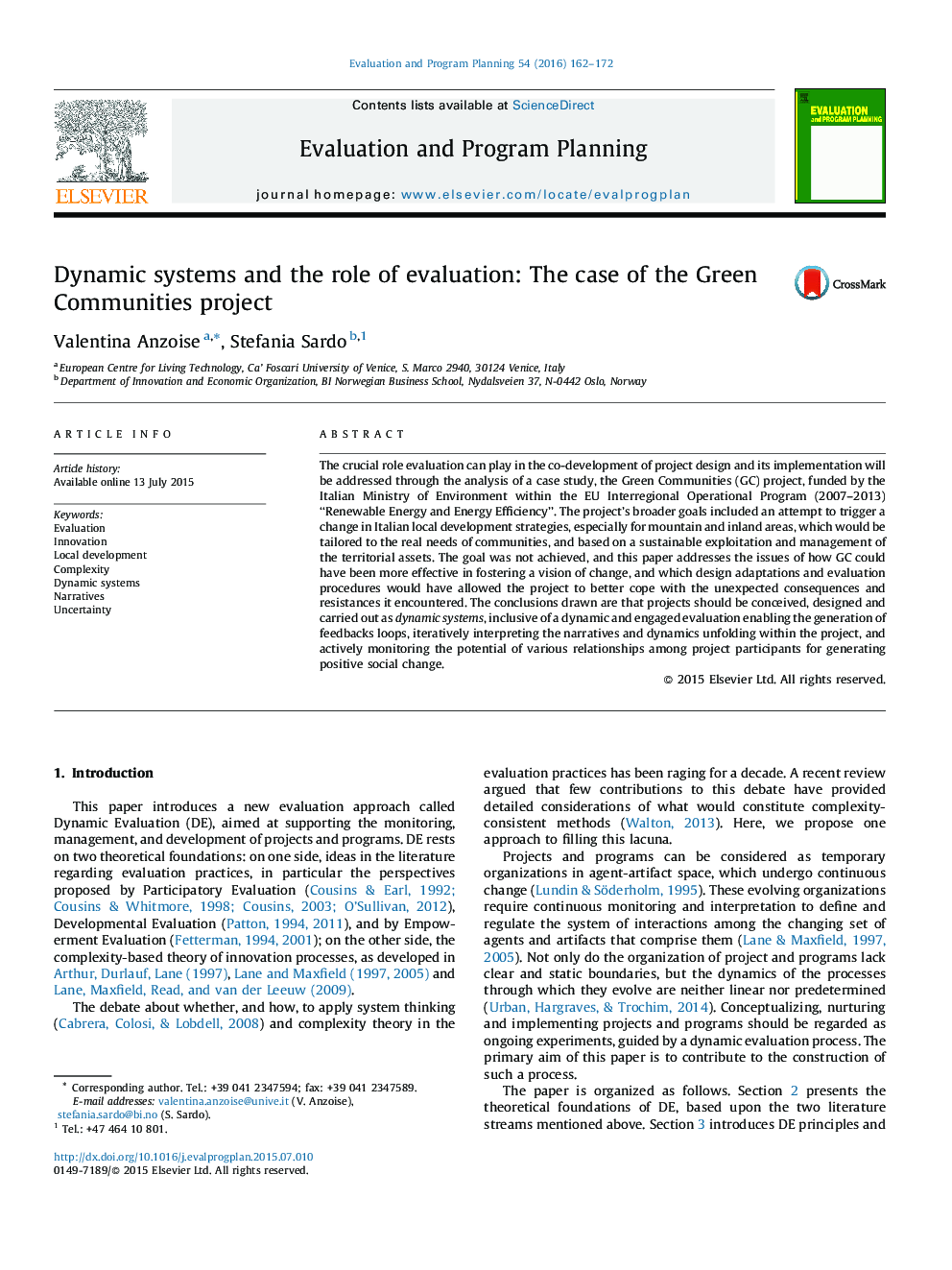| Article ID | Journal | Published Year | Pages | File Type |
|---|---|---|---|---|
| 322434 | Evaluation and Program Planning | 2016 | 11 Pages |
The crucial role evaluation can play in the co-development of project design and its implementation will be addressed through the analysis of a case study, the Green Communities (GC) project, funded by the Italian Ministry of Environment within the EU Interregional Operational Program (2007–2013) “Renewable Energy and Energy Efficiency”. The project's broader goals included an attempt to trigger a change in Italian local development strategies, especially for mountain and inland areas, which would be tailored to the real needs of communities, and based on a sustainable exploitation and management of the territorial assets. The goal was not achieved, and this paper addresses the issues of how GC could have been more effective in fostering a vision of change, and which design adaptations and evaluation procedures would have allowed the project to better cope with the unexpected consequences and resistances it encountered. The conclusions drawn are that projects should be conceived, designed and carried out as dynamic systems, inclusive of a dynamic and engaged evaluation enabling the generation of feedbacks loops, iteratively interpreting the narratives and dynamics unfolding within the project, and actively monitoring the potential of various relationships among project participants for generating positive social change.
